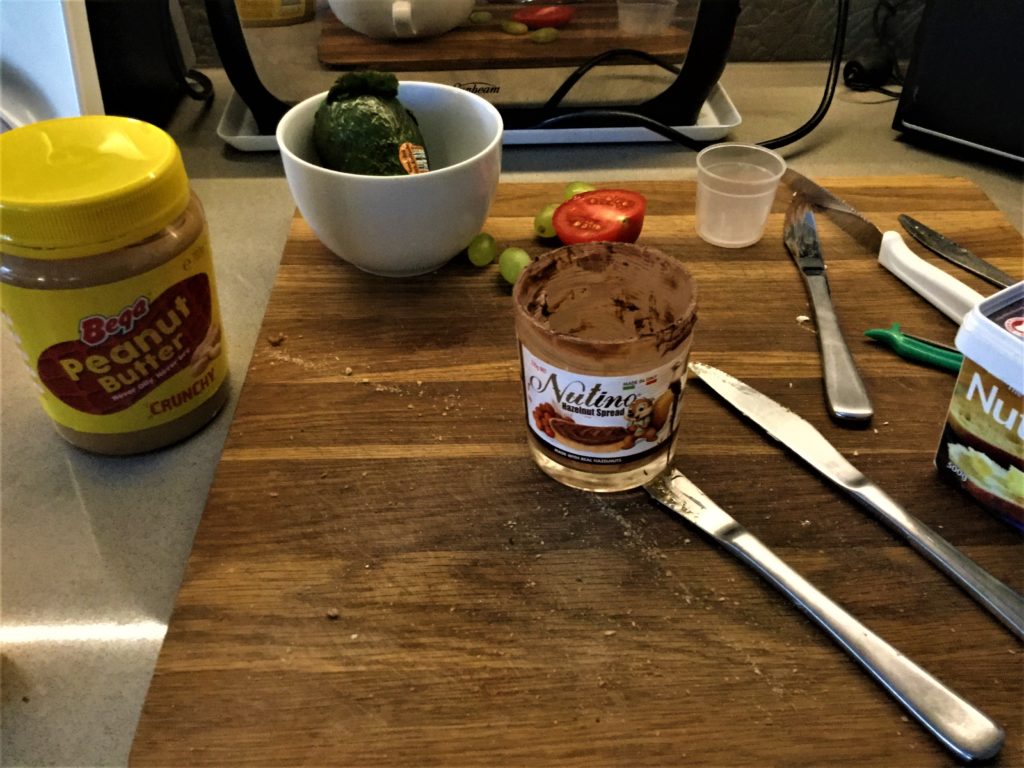TIme flies – blink, and it’s nearly the end of term.
To be honest, I was dreading the beginning of this school year. Living in hope, but bruised by reality, I wasn’t looking forward to massaging my youngest boy into Year 7, or my oldest boy into Year 12.
I did the maths. Over the past four years, between the two of them, there have been five changes of schools. Six, if you count the time our oldest was briefly enrolled in distance education.
Supposedly, kids on the spectrum thrive on routine and predictability. With all these transitions, there wasn’t a whole lot of predictability happening. This year was to bring still more changes, and significant ones at that. My outward optimism hid inner concerns.
Nevertheless, here we are, a fortnight before the end of term, and things have been okay. Good, even.
The youngest has been at camp. This time last year, he had started running away from school. His anxiety was so overwhelming, we couldn’t send him to Grade 6 camp. I need to pinch myself, sometimes. It’s so different from how things have been over the past few years.
In the Beginning
For kids with high-functioning autism, school can be “torture”, to quote our youngest. The social agenda, noise, busyness, seemingly irrelevant tasks and other concerns that this child can’t articulate, all conspire against us as we try to instil in him the value of education.
Given his lack of enthusiasm about school, we passed most of the holidays avoiding the subject of starting Year 7. We weren’t sure how best to help prepare him emotionally, and he certainly didn’t want to discuss the topic. So what would we do? Try to prepare him by talking about difficult things a little and often? Or avoid disturbing his holiday equilibrium and wait until the last minute?
There’s a niggling voice in my head that whispers, “They should be doing this for themselves…” I want it to shut up and go away.
Book collection day provided a natural ‘in’. We alerted him a couple of days in advance. To lessen his anxiety, we planned to do all the school-related things in one day – books, uniform, shoes. We fully expected a meltdown. But book collection passed with barely a “meh” and he survived the sensory challenges of uniform and shoe fittings. We could tell by his demeanour and snappiness that it was a strain, but he contained himself. That was no mean feat.
We took the same “hands off” approach with Mr Year 12. His views differ slightly from his brother’s, but he too has found school torturous at times and has certainly struggled with seeing its relevance. Nevertheless, he is maturing. We felt that he needed to assume responsibility for his school preparation as much as he does in his train activities, his real passion.

Enduring homework tasks before getting onto the ‘real’ stuff of trains.
However, his approach to tackling his holiday homework did not augur too well for Term 1. He left it until almost the last minute, although he duly completed everything on time by pulling an all-nighter. Hmmm…
Making it easy
Could we have made the return to school easier for our boys? Should we have been more proactive and direct? I don’t know. It still takes a deft touch and finely tuned antennae to pick up their signals. Inquiries about helping and suggestions of things to follow up are mostly rebuffed. Yet not offering makes us seem uncaring!
Honestly, this more than does my head in.
There’s a niggling voice in my head that whispers, “They should be doing this for themselves…” I want it to shut up and go away.
Identify your goal and don’t sweat the small stuff.
Classwork, homework, housework, courtesy, eating with the family, preparing lunch, organising clothes, books, room – the list goes on. I still need to remind myself that for these two boys, just getting through the day is a major effort. There’s probably little – if any – mindspace left over. And they need to rest and replenish their reserves before the next school day.
So am I helping or hindering them from becoming independent young men? I don’t want to disempower or spoil them in the ways I try to help, support and understand them. I don’t want to raise selfish, self-focussed young men. But I also need to get from the beginning of the day to the end, and so do they.
This balancing act differs for every family and every child. The common theme is: identify your goal and don’t sweat the small stuff.
My goal here is to get my boys off to school.
For my youngest, just getting out the door and getting to school is a big mental effort, so I believe I’m making the right judgement call to make his lunch and lay out his clothes. Considering that this time last year, I had to (literally) prise him out of the car, he’s come a long way.
My oldest boy has become much more independent about getting up and out, but laundry is not his strong point. He’s trodden a difficult path to get this far, so I’m happy to do whatever helps him.
Food
Like many families with teenage children, and especially kids with autism, we struggle to get our children eating a balanced diet. All my talk about the importance of a balanced diet for physcial and mental health – not to mention being able to concentrate at school – falls on deaf ears. If this is your struggle, you’re not alone!
The major food groups being consumed in our house at the moment for our oldest and youngest boys are chcolate hazelnut spread on white bread and meat pies. Because, of course, there’s “nothing to eat” in the house! Gone are the days when we could get vegetables into our kids on the aeroplane spoon. Sigh. But again – goals. And going off to school on a stomach full of Nuttino toast is better than leaving with an empty stomach.

Nutino…or nuttin’? Sometimes you have to settle for the least worst option.
Homework
All my reading and personal experience says that homework is particularly hard for those on the spectrum. It’s schoolwork, so why call it homework? And why do more work at home when you’ve just spent all day at school? This argument has logic, but it makes for stressful afternoons during the school week.
Here’s where you really have to turn off the “comparison” switch in your brain, especially if you (meaning me) were a swot as a child.
Say it ten times whenever you catch yourself about to compare: I AM NOT MY CHILD! And neither is that kid down the road whom I met walking their dog after doing two hours of homework a night, helping with the dishes and tidying their room!
TURN THAT COMPARISON SWITCH OFF! Encourage, cajole, incentivise (okay, bribe), but do not compare.
And if you can’t completely turn the switch off, at least have it on “inner voice” mode.
Your child is probably going through enough, whatever year level they’re in, without feeling they’re not good enough for you. Home must be a safe place, where they’re loved, nurtured and accepted for who they are – not made to feel less valued for who they’re not.
So I look at Mr Year 12, who is achieving academically despite no visible time spent studying. What can I say? Good on him. We’re very proud that he is grappling with his multitudinous stresses and getting himself through. Mr Year 7? Well, he’s mostly doing most of his work mostly on time. We’re streets ahead of where we were last year. This is the one time you may use the comparison switch – to remind yourself of the progress your children have made from one year to the next. Keep focusing on those goals. Where homework is concerned, even sitting down and opening the books is a small step towards success.
So far, so good
After several years of rocky roads through school, it is a relief to have relatively smooth sailing for this latest transition. Be encouraged, if you’re on a rocky road yourself. There will be times when the path is smoother – even if it does take choc hazelnut spread and meat pies! Just remember, play the long game: choose your goals, try not to sweat the small stuff and be a safe, loving place for your kids.
Until next time, happy Wombatting.


